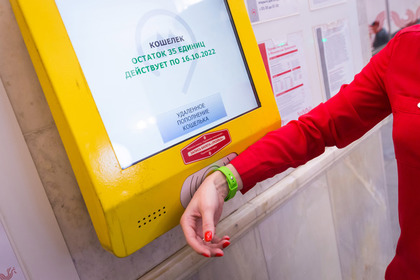Government plans to limit anonymous electronic payments
 Today it became known that the relevant departments are preparing, on behalf of the government, amendments to the legislation. Their essence is the limitation of anonymous electronic payments. Russians will be able to transfer funds to e-wallets and prepaid bank cards only from a bank account. As far as one can understand, the restrictions can be quite tough, Kommersant writes .
Today it became known that the relevant departments are preparing, on behalf of the government, amendments to the legislation. Their essence is the limitation of anonymous electronic payments. Russians will be able to transfer funds to e-wallets and prepaid bank cards only from a bank account. As far as one can understand, the restrictions can be quite tough, Kommersant writes .For example, the Central Bank believes that it would be quite sufficient to prohibit withdrawing funds from electronic wallets and prepaid cards. In Rosfinmonitoring, they are sure that the purse holders must be identified on a mandatory basis. Agencies believe that they will be able to ultimately come to a compromise. Whatever it is, the market of electronic payments will lose a fairly large part of its customers.
It all started on November 7, 2017. Then the Ministry of Finance reported on the execution of the instructions of the government. In the framework of this order, the goal was set to understand the feasibility of prohibiting the crediting of funds to non-personalized electronic means of payment (NESP) without using a bank account. This issue was studied with the participation of the Central Bank, Rosfinmonitoring, the Ministry of Justice, the Ministry of Economy. Already on December 1, 2017, a conciliation meeting was held at the Ministry of Finance, at which various positions of officials regarding such a ban were discussed. At the meeting, consensus was not reached, and the discussion had to be transferred to the platform of the government apparatus.
We are talking about NEPS, these are electronic means of payment, for which customer identification is not required when opening - most of them are electronic wallets and prepaid bank cards. According to an organization such as Electronic Money, there are more than 100 million active, anonymous e-wallets and prepaid cards in Russia. At the same time, there are relatively many ways to credit funds up to 15 thousand rubles. You can credit a payment using cash, through a bank, a terminal, or a bank card. Accordingly, the flow of funds and their withdrawal is not controlled. And this carries the risk of using NESP for illegal purposes.
')
The main differences in terms of such payments and anonymity arose between the Bank of Russia and Rosfinmonitoring. True, there is a discussion not of limitations, of their expediency, but of different degrees of rigidity of these limitations. The Central Bank claims that the offer should be supplemented with a ban on receiving cash from electronic wallets and prepaid cards. The bill on anonymous payments was submitted to the State Duma last fall. Rosfinmonitoring, for example, suggests banning anonymous wallets and cards entirely. To open them you will need to go through a simplified identification.
“We see the use of the same anonymous wallets to finance terrorist, extremist and illegal activities. Therefore, we propose anonymity to refuse. The existence of such anonymous products in itself contradicts the recommendations of 10 FATF, which will check Russia for compliance with the requirements in 2018–2019, ”said Pavel Livadny, State Secretary of Rosfinmonitoring.
In turn, in the Central Bank the position of Rosfinmonitoring is considered as unreasonably tough. Thus, according to representatives of the Central Bank, the introduction of mandatory identification for NESP will lead to the transition of the population to cash payments, as well as add elements of social tension. True, the press service of the Central Bank said so far only that "the question of the scope of changes in legislation in this area is currently being discussed."
Some experts believe that many users of electronic wallets use them to pay for parking and other payments, Troika cards were also created as a convenient means of payment. And if you try to force users to transfer funds only through a bank account, then for many people the very meaning of using such products will be lost.
Representatives of Webmoney, in turn, said that in addition to control, means of payment should also be easily accessible. And if you begin to restrict users of electronic non-cash money, then they will switch to cryptocurrency, which is generally extremely difficult to regulate.
Source: https://habr.com/ru/post/371199/
All Articles